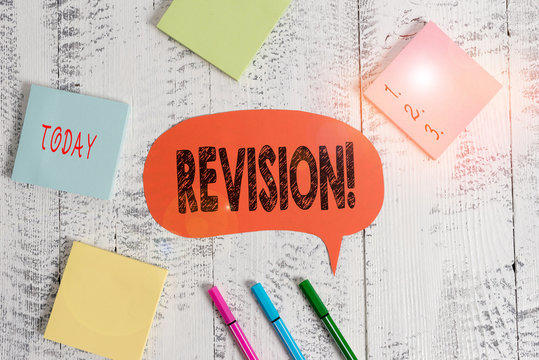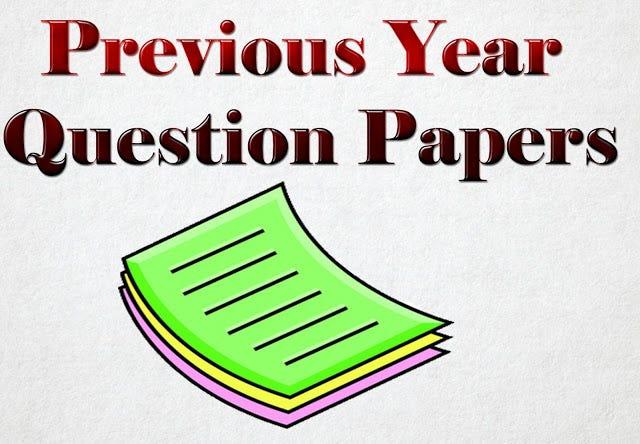Having a plan to prepare for the UPSC exam is essential for candidates. UPSC examinations are extremely challenging and necessitate extensive preparation and dedication. It doesn't matter how much you study; you should always return to the books. However, looking at question papers from prior years can help you uncover new areas of preparation. Quite surprisingly, UPSC does repeat questions.
To get a feel for the format of the questions on both the UPSC preliminary and main exams, look no further than the UPSC question papers from previous years. You can learn a lot about the types of questions asked on certain subjects, the relative importance of various areas, the prevalence of questions from the static and dynamic parts of the exam, and more by completing these exams.

UPSC Previous Year Question Papers
The UPSC's official website usually provides access to the previous year's question papers. You can visit www.upsc.gov.in and navigate to the examination section, where past papers might be available for download.
Websites like ClearIAS, Examrace, and UPSCbuddy often have a collection of previous year question papers along with solutions. You can search for them using keywords like "UPSC previous year question papers" in search engines.
- https://upsc.gov.in/examinations/previous-question-papers?field_exam_name_value=Civil+Services+%28Preliminary%29+Examination
- https://upsc.gov.in/examinations/previous-question-papers
Why Solve UPSC Previous Year Question Paper
No matter how much time and effort you put into studying, you still might not be ready for the real test unless you look at the questions from the prior year. If you want to know what kinds of questions are on the exam and how to prepare for them, go into question papers from prior years. Consequently, you should work on questions from prior years' exams.
Knowing what lies ahead and how to overcome obstacles is the mantra for success. By completing the questions from the previous year's exam, you may get a feel for the level of difficulty, the topics covered, and whether the questions come from the static or dynamic sections of the material. Finding solutions to questions from prior years' exams is a topic we'll cover in this piece.
Exam Pattern
Aspirants can streamline their preparation by familiarizing themselves with the exam pattern. An important strategy for succeeding on exams is to familiarize oneself with their patterns. Looking at the question paper from the previous year is a good way to get a feel for the course material and the syllabus. Aspirants can plan their study accordingly after learning certain details, such as the weight of marks.
Understand the format of the test
By solving the questions from the previous year's exam, you can get a good feel for the format, nature, and type of problems that will be on the test this year. It becomes critically significant when objective-type questions are posed in preliminary exams. I also understand the level of difficulty, especially for different areas. The actual exam question paper will be shorter once you are familiar with its format and nature.
Recent subjects
For general studies papers, which cover a wide range of subjects drawn from national and worldwide news, this becomes crucial. If you want to see what subjects were popular in previous years, you can look at the question papers from that time. Aspirants can then zero down on those areas to study.
Previous year's solved question papers are a great resource for anyone aspiring to be an IAS. Clearly explain how you plan to use solved paper sets into your study regimen. This will aid in comprehending the theoretical component, which in turn will aid in answering numerous comparable inquiries. This is crucial for the final tests.
Practice
Repetition, repetition, and repetition. We are all aware that "practice makes a man perfect," which means that the more you practice, the better you'll get. True for those who aspire to be IAS officers. You have a better probability of answering more questions and gaining a better grasp of the kind of questions asked the more you practice. You can better manage your time and get higher scores on the CSE exam by practicing with past questions.
Method for Preparation
One way to improve your preparation plan is to solve question papers from past years. Athletes can monitor their development and evaluate their readiness. When your weak spots are highlighted, you may come to understand that you need to make adjustments to your preparation strategy.
Topic revision
Solving question papers from prior years is a great way to brush up on the subject. As soon as you finish preparing, solve these questions. Assess your progress and address your areas of improvement. Questions are often restated by changing their wording or form. You can save time by reading the questions attentively.
An integral aspect of UPSC preparation is self-assessment. Examining your performance on questions from prior years can give you a sense of how well you've prepared. You gain wisdom from your blunders. Evaluate the error and rethink your approach. Exam performance will undoubtedly improve as a result of this.
Analyzing UPSC Previous Year Question Papers
A candidate must solve UPSC previous years' question papers if they wish to succeed on the UPSC exam. Every aspirant can benefit from practicing PYQ as part of their UPSC prep at home. Let's find out how to ace this preparation tool to your optimum advantage.
Familiarize Yourself with the Format of Past Questions
While preparing for the UPSC exam, it is essential to review and solve questions from prior years' exams. Candidates will have a much better grasp of the question type and format after the analysis, which is crucial. Once the format is known, the aspirants can read the question and acquire a sense of its structure, which will help them solve it. Before you start preparing for the UPSC, you must analyze the PYQ. In the exam room, you shouldn't read the questions too quickly and try to predict their answers. You have a better shot at getting the question type right once you know it.

Plan Your Study
Schedule time to solve the previous year's questions in a study plan. Stay on schedule and set realistic goals. Give yourself enough time to solve and analyze the papers.
Start with Simpler Questions
Solve prior year papers. This lets you get used to the exam and gain confidence. To keep up with the trend and difficulty, read more recent studies.
Examine Answer Key and Explanations
After answering a question, carefully review the answer key and explanations. Understand the proper answers' rationale and learn from your mistakes. Pay attention to solution thinking, concepts, and methods. This analysis will increase your subject knowledge and problem-solving.
Identify Knowledge Gaps
Analyze the question papers to find your weaknesses and faults. These knowledge gaps represent areas that need more study. Note these areas and spend time learning them.
Manage Time
Set a time limit for question paper solutions during practice sessions to imitate test conditions. This will improve your time management skills, helping you finish the exam on time. Track your progress and attempt to improve speed and accuracy.
Understand Concepts Better
Instead of memorizing, focus on intellectual comprehension. Examine the questions to determine the concepts being tested. This method will help you solve comparable challenges and apply your knowledge to real-life situations.
Get a Feel for How Important the Questions Are
After compiling a list of potential subjects, refer to the UPSC syllabus and make a note of how many questions each subject or subtopic is likely to include. This means that aspirants will focus more on subjects that have received a high volume of questions, even if the volume of questions is low for a particularly large topic. Candidates with limited time to prepare for the test should pay close attention to the question weighting.
Begin Utilizing PYQs
Now it's time to put it all into practice. Your ability to analyze PYQ will improve as you continue to do so. Aspirants would benefit much from this study when they take the UPSC 2023 exam. Maintain your practice routine and make adjustments as necessary. Once you've mastered the past year's papers, there's no stopping you from beginning to prepare for the UPSC exam by taking practice exams. The more you put into practice, the better you'll get at it.
Perform Mock Tests and Assess Performance
Mock exams that mirror the exam are essential in addition to studying past years' questions. Assess your performance and improve your weaknesses. Mock tests let you estimate your UPSC exam readiness by assessing your preparation.

Think Back and Evaluate
UPSC sspirants should think carefully about what they have learned after completing the PYQ. Find out where you excel, what you struggle with, and how you can strengthen each area. Focus mostly on the areas where you are weakest and where the most questions have been asked.
Get Expert Advice
If you need help assessing question papers, ask experienced mentors or subject matter experts. They can illuminate your questions and suggest alternate solutions. Discussing the topic with classmates and joining study groups can also help.
Résumer avec l'IA :











